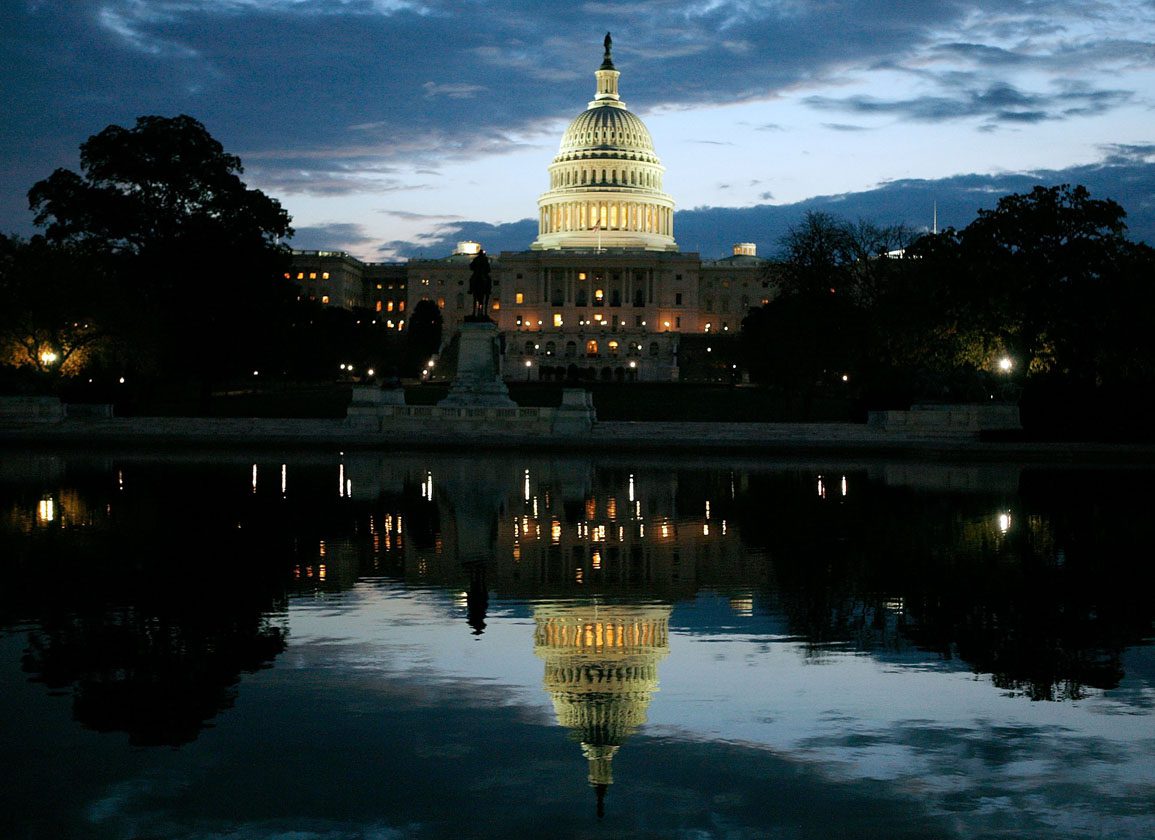By T. D. Thornton
With oral arguments tentatively scheduled for the first week in October, the National Horsemen's Benevolent and Protective Association (NHBPA) and 12 of its affiliates told the United States Court of Appeals for the Fifth Circuit on Wednesday that the rewritten version of the Horseracing Integrity and Safety Act (HISA) remains “patently unconstitutional,” and that the Authority overseeing the sport “is basically a private police department” whose sweeping powers equate to “oligarchic tyranny.”
As the appellants in a lawsuit that has persisted in the federal court system for more than 27 months, the HBPA plaintiffs were allowed to file the first briefing in a landmark case for the Thoroughbred industry that has been put on an expedited schedule by the Fifth Circuit.
The defendants, who are personnel from the Federal Trade Commission (FTC) and the HISA Authority, have 30 days to craft a reply. They will make their filing knowing that a lower court in Texas has already ruled that an amended version of HISA is constitutionally compliant because it fixed defects that the Fifth Circuit had previously identified. The HISA law has also been upheld as constitutional in a separate lawsuit initiated by different plaintiffs that got validated on appeal to the Sixth Circuit.
In a 72-page brief filed July 5, the HBPA appellants laid out an argument based on the premise that the rewritten HISA statute that got signed into law late in 2022 still doesn't pass the constitutional sniff test.
“This Court has already struck down HISA once before,” the HBPA filing stated. “Then Congress tweaked the law in one respect, giving the FTC a modicum of additional power over the original design. Though it is understandable to desire to applaud 'a productive dialogue' between the branches, this Court's job is not to reward Congress for passing a marginally less unconstitutional law by declaring it constitutional. Laws do not get passing grades for improved effort. Nor is constitutional analysis like horseshoes or hand grenades, where close–or even just slightly closer–is good enough.”
The HBPA filing continued: “This Court's job is to again tell Congress–'No.'”
Central to the HBPA's case is the principle in administrative law that Congress cannot delegate its legislative powers to other entities. In their brief, the horsemen argue that the HISA Authority is a private entity subject to that “private nondelegation” doctrine, and that it is wrong to intentionally grant it powers that evade the safeguards of constitutional design.
“An alternative way to think about private nondelegation is not to ask about the quantity of supervision authorized, but the quality of the powers delegated. This question is not how much surveillance and authority the FTC has, but what type of power the Authority wields,” the HBPA filing stated.
“HISA is directly contrary to the historical understanding of private delegation. Ultimately the corporation is named the Horseracing Integrity and Safety Authority, and not Advisors or Administrators, because its purpose is not to advise the FTC or perform ministerial tasks. Its purpose is to exercise sovereign national authority [and] giving such governmental authority to a private corporation was and remains 'delegation in its most obnoxious form.'”
The HBPA filing put it this way: “The Authority establishes the programs, drafts the rules, makes policy decisions, exercises enforcement discretion, investigates individuals, seizes evidence, prosecutes industry participants, sits in judgment on them, issues sanctions, decides how much it wants to spend, and then decides how much it will take in taxes to fund that spending.
“It does all of this without appointment of its board members by the president, confirmation of those board members by the Senate, appropriation of its funds or authorization of its fees by Congress, review of its investigatory requests by a federal magistrate, or transparency to the industry and the public through accountability laws like the Freedom of Information Act, Federal Advisory Committees Act, or Government in the Sunshine Act.”
The first time the HBPA plaintiffs attempted to challenge the original 2020 version of the HISA statute in federal court, on Mar. 15, 2021, the suit was dismissed more than a year later, on March 31, 2022.
The HBPA plaintiffs then appealed, leading to a Fifth Circuit Court reversal on Nov. 18, 2022, that remanded the case back to the lower court. In the interim, an amended version of HISA got signed into law on Dec. 29, 2022.
On May 4, 2023, the lower court deemed that the new version of HISA was constitutional. The HBPA plaintiffs swiftly filed another appeal back to the Fifth Circuit, which is where the case stands now.
The HBPA filing stated that, “this Court should approach the amended statute with a clean slate and hold it up to the high bar set for a delegation of government power to a private actor, as enunciated in its prior opinion. If this Court does so, it will see that the act again fails. Even as amended, the statute does not give the FTC pervasive surveillance and control over the HISA Authority.”
At a different point in the filing, the HBPA took umbrage with HISA's funding mechanisms.
“The powers to set taxes and spend tax funds are legislative powers. The Authority has the power to tax–it is empowered by HISA to set a mandatory assessment that either states pay, or if states decline to pay, then covered persons must pay directly. This is a tax….These funds are not voluntary or charitable contributions from covered persons and states–these are mandatory, obligatory fees levied by law. Failure to pay them can result in fines and suspension from racing. Once these funds are collected, HISA allows the Authority to spend them without any FTC oversight.”
Enforcement is also constitutionally problematic for the HBPA.
“The Authority has the power to search and inspect 'offices, racetrack facilities, other places of business, books, records, and personal property of covered persons that are used in the care, treatment, training, and racing of covered horses,' to issue subpoenas, to compel truthful and complete answers to inquiries, to undertake urine and blood tests without advance notice, and to exercise 'other investigatory powers of the nature and scope exercised by State racing commissions,' which the Authority has apparently defined to include the power to seize evidence….
“By contrast,” the filing continued, “if the FTC wanted to conduct a search or seize evidence, it would need a warrant from a magistrate. For the Authority to conduct a search or seize evidence, it doesn't even have to let the FTC know, little less secure the advance approval of a federal magistrate. This is an unconstitutional mutation of executive power. The Authority also has the power to hold administrative hearings, weigh evidence, decide guilt, and issue sanctions. These are also executive powers…
“As a result, under the terms of the statute, horsemen are investigated and subpoenaed and their property is seized with zero pre-clearance from a federal official, little less an independent magistrate,” the filing stated.
The HISA and FTC defendants now have the opportunity to file their own brief with the Fifth Circuit Court by Aug. 4.
Not a subscriber? Click here to sign up for the daily PDF or alerts.






